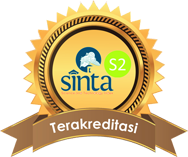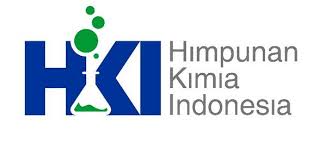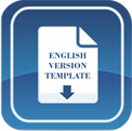Developing Problem-Based Learning Modules on Petroleum Materials in Chemistry Learning
DOI:
https://doi.org/10.15575/jtk.v8i1.23952Keywords:
define, design, development, petroleum, problem-based learningAbstract
The aim of this study is to investigate how to develop, validity, and practicality levels from the PBL-based module. The research is based on Research & Development (R&D) with a modified 4-D development model to 3-D covering define, design, and development stages. Data collection tools include observation, validation, worksheet, and questionnaires of students’ responses to the chemistry modules. Based on the study results, it was identified that the modules developed to determine criteria eligibility, practicality, and response students of Problem-Based Learning on petroleum material. The material and media experts' validation tests showed 0.851 and 0.726 (valid), respectively. The average practically percentage of modules for students is 77.52% with very practical criteria. The development of PBL-based chemistry modules on chemistry and the application of petroleum is expected to help students in learning chemistry.
References
Anom, K., Sukaryawan, M., & Haryani, M. E. (2018). Pengembangan modul pembelajaran kimia terintegrasi kewirausahaan, pendekatan STEAM dan PBL. Jurnal Penelitian Pendidikan Kimia : Kajian Hasil Penelitian Pendidikan Kimia, 5(1), 56–64. https://doi.org/10.36706/jppk.v5i1.8419
Arikunto, S. (2009). Basics of educational evaluation. Jakarta: PT Bumi Aksara.
Asmaningrum, H. P., Khoe, R. I., & Sukirno. (2018). Analysis of student response to the development of chemical supplement books based on local wisdom of the Asmat Papua tribe. Musamus Jurnal Science Education, 1(1). https://doi.org/10.2991/snk-18.2018.32
Assari, A.M., Muharini, R. Ulfah, M., Erlina Lestari, I. (2023). Pengembangan e-modul multi representasi berbasis flip pdf corporate edition pada materi sifat asam basa senyawa organik. Quantum: Jurnal Inovasi Pendidikan Sains, 14(1), 66-86. Retrieved from https://garuda.kemdikbud.go.id/documents/detail/3440253
Borg, W.R., Gall, J., P., Gall, M. D. (2003). Education research: an introduction. USA: Pearson Education.
Carlson, N. A., Singh, A., Talmadge, M. S., Jiang, Y., Zaimes, G. G., Li, S., ... & Ramirez-Corredores, M. M. (2023). Economic analysis of the benefits to petroleum refiners for low carbon boosted spark ignition biofuels. Fuel, 334(1). https://doi.org/10.1016/j.fuel.2022.126183
Darmadi, H. (2011). Metode penelitian pendidikan. Bandung: Alfabeta.
Daryanto, & Dwicahyono, A. (2014). Development of learning tools. Yogyakarta: Gava Media.
Febriana, B. W., Ashadi, & Masykuri. (2016). Pengembangan modul kimia berbasis problem based learning (PBL) pada materi senyawa hidrokarbon dan turunannya kelas XI SMK Kesehatan Ngawi. Program Studi Magister Universitas Sebelas Maret, 1, 1–23. Retrieved from https://jurnal.fkip.uns.ac.id/index.php/snps/article/view/5065
Hendryadi. (2017). Validitas isi: tahap awal pengembangan kuisioner. Journal of Business Research and Management, 2(2), 169–178. https://dx.doi.org/10.36226/jrmb.v2i2.47
Imanda, R., Khaldun, I., & Azhar, A. (2017). Pengembangan modul pembelajaran kimia SMA kelas XI pada materi konsep dan reaksi-reaksi dalam larutan asam basa. Jurnal Pendidikan Sains Indonesia, 5(2), 41–48. https://doi.org/10.24815/jpsi.v5i2.9816
Lestari, A. F., Ningrat, H. K., & Qurniati, D. (2020). Pengembangan modul kimia SMA berbasis problem based learning (PBL) pada materi kelarutan dan tetapan hasil kali kelarutan. Spin Jurnal Kimia & Pendidikan Kimia, 2(1). https://doi.org/10.20414/spin.v2i1.2021
Mellyzar, Imanda, R., & Yusnidar. (2021). Pengembangan modul kimia berbasis problem based learning pada materi tata nama senyawa dan persamaan reaksi. Proceedings of the Science Education Seminar, 1(1). Retrieved from http://conference.unsri.ac.id/index.php/semnasipa/article/view/2361
Minarni, M., & Malik, A. (2019). Development of teaching materials in the form of comic media with 3D page flip on chemical bonding materials. Journal of Chemistry Education Innovation, 13(1). https://doi.org/10.15294/jipk.v13i1.15984
Naibaho, S., & Suryani, O. (2023). Pengembangan modul pembelajaran kimia berbasis PBL untuk sekolah penggerak fase F SMA/MA pada materi hidrolisis garam. Jurnal Pendidikan Dasar; FONDATIA, 7(2), 356–370. https://doi.org/10.36088/fondatia.v7i2.3441
Natasari, J. (2020). Pengembangan modul kimia berbasis problem based learning pada materi larutan elektrolit dan non elektrolit kelas X di SMA YPI Tunas Bangsa Palembang. Repository Sriwijaya University. Retrieved from https://repository.unsri.ac.id/41194/
Nugraha, D. (2020). Pengembangan komik kimia sebagai media pembelajaran berbasis CET (chemo-edutainment). Chemistry in Education, 9(2). Retrieved from https://journal.unnes.ac.id/sju/index.php/chemined/article/view/42770
Prastowo, A. (2015). Creative guide in creating innovative teaching materials. Yogyakarta: DIVA Pres.
Purnamasari, L., L, H. M., & Edi, R. (2017). Pengembangan modul kimia berbasis problem based learning pada materi reaksi reduksi oksidasi kelas X di SMAN 10 Palembang. Jurnal Penelitian Pendidikan Kimia, 4(2). https://doi.org/10.36706/jppk.v4i2.8442
Retnawati, H. (2016). Analisis kuantitatif instrumen penelitian (panduan peneliti, mahasiswa, dan psikometrian). Yogyakarta: Parama Publishing.
Salsabila, N., & Nurjayadi, M. (2019). Pengembangan modul elektronik (e-module) kimia berbasis kontekstual sebagai media pengayaan pada materi kimia uinsur. Jurnal Riset Pendidikan Kimia, 9(2). https://doi.org/10.21009/JRPK.092.07
Sanjaya, M. D., & Sanjaya, M. R. (2018). Pengembangan bahan ajar menulis ringkasan dan ikhtisar pada mata kuliah pengembangan keterampulan menulis FKIP Universitas Baturaja. Journal of Educational Studies, 3(1). http://dx.doi.org/10.30983/educative.v3i1.549
Sari, H., Idrus, S. W. Al, & Rahmawati. (2022). Pengembangan modul pembelajaran kimia berbasis model problem-based learning (PBL) pada materi koloid. Jurnal FKIP, 5(1). https://doi.org/10.29303/cep.v5i1.2697
Sudarmo, U. (2004). Chemistry for high school class XI competency-based curriculum. Jakarta: Erlangga.
Sudarmo, U. (2017). Chemistry for high school/ma class XI. Surakarta: Erlangga.
Sunaringtyas, K., Saputra, S., & Masykuri, M. (2015). Pengembangan modul kimia berbasis masalah pada materi konsep mol kelas X SMA/MA sesuai kurikulum 2013. Journal of Science Education, 4(2). Retrieved from https://jurnal.uns.ac.id/inkuiri/article/view/9550
Thiagarajan, S., Semmel, D. S., & Semmel, M. I. (1974). Instructional development for training teachers of exceptional children: a sourcebook. Retrieved from https://eric.ed.gov/?id=ED090725
Wati, F. S., Lathifa, U., & Udaibah, W. (2019). Pengembangan modul kesetimbangan kimia berbasis unity of sciences (Uos) dan multilevel representasi. Thabiea : Journal of Natural Science Teaching, 2(2). https://doi.org/10.21043/thabiea.v2i2.59
Wei, Z., Wei, Y., Liu, Y., Niu, S., Xu, Y., Park, J. H., & Wang, J. J. (2023). Applications of biochar in the remediation of petroleum hydrocarbon-contaminated soil and water: A review. Journal of Environmental Sciences. 138, 350-372. https://doi.org/10.1016/j.jes.2023.04.008
Downloads
Published
How to Cite
Issue
Section
Citation Check
License
Authors who publish with this journal agree to the following terms:
- Authors retain copyright and grant the journal right of first publication with the work simultaneously licensed under a Creative Commons Attribution-ShareAlike that allows others to share the work with an acknowledgement of the work's authorship and initial publication in this journal.
- Authors are able to enter into separate, additional contractual arrangements for the non-exclusive distribution of the journal's published version of the work (e.g., post it to an institutional repository or publish it in a book), with an acknowledgement of its initial publication in this journal.
- Authors are permitted and encouraged to post their work online (e.g., in institutional repositories or on their website) prior to and during the submission process, as it can lead to productive exchanges, as well as earlier and greater citation of published work (See The Effect of Open Access).









